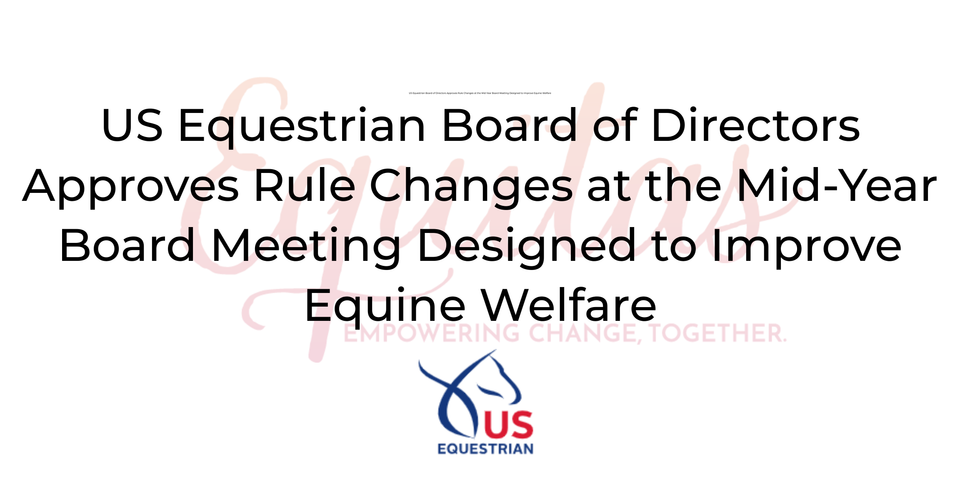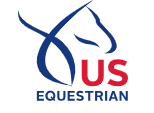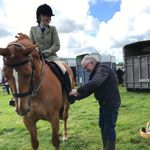New Rules, Real Change: USEF Tightens Standards for Horse Welfare and Competition Integrity

The U.S. Equestrian Federation (USEF) Board of Directors met on 16–17 June 2025 in Lexington, Kentucky, where it approved a number of rule changes focused on strengthening equine welfare, improving competition integrity, and enhancing regulatory clarity. Chief among these was the expansion of USEF’s testing capabilities under GR402.1. From 1 July 2025, hair samples will be included alongside blood and urine in anti-doping testing, allowing for the detection of certain substances over a longer timeframe, including barbiturates such as euthanasia agents.
A further rule, GR843, will come into force on 1 December 2025, requiring all veterinarians treating horses at USEF-licensed competitions to be registered with the federation. This does not involve membership but ensures vets on-site can be contacted quickly in the event of emergencies, biosecurity issues, or compliance concerns. It forms part of a broader focus on accountability and coordinated response.
The Board also approved Presidential Modifications to GR122 and GR849.8, effective from 1 July 2025, aimed at preventing horses that collapse at events from being returned to competition prematurely. A collapse is now clearly defined as any instance in which a horse’s body—other than the hooves—makes contact with the ground or an obstacle, even if the horse rises again. If such a collapse occurs in the Hunter, Jumper, or Hunter/Jumper Seat Equitation disciplines, the horse must be removed from the competition grounds and is ineligible to compete for seven days. Re-entry is contingent upon a veterinary clearance form being filed with USEF.
The Board also approved the adoption of formal position statements on Equine Overuse and Equine Safety and Welfare. These statements set out USEF’s ongoing commitment to responsible training, clear safety standards, and long-term equine wellbeing across disciplines.
Several proposed rule changes were referred for further review later this year. These include revisions related to whip use, competition mileage and points systems, visible blood on horses during competition, and return-to-show criteria following medical concerns or injuries.
A series of additional rule changes were approved for implementation on 1 December 2025. These include updates to Arabian competition classes and amateur status (AR110.2, AR125.2, AR229.1), required time standards and expense coverage in Para Driving (DC958, DC966), removal of brand restriction for nose nets and clarifications in dressage regulations (DR121.13, DR121.19, DR126.2, DR128.2, DR133.1), and updated criteria for USEF Talent Search Finals (EQ111.7). Also approved were refinements to eventing elimination standards (EV104.8), permissions around Arabian judge apprenticeships (GR1006.2), dual licensing for FEI Driving Technical Delegates (GR1040.3), Connemara Horse of the Year award criteria (GR1128.1), Hunter ring jogging procedures (HU138.7), interaction guidelines between exhibitors and judges (HU116.4), and increased maximum toe length for Classic Pleasure Morgan horses (MO103.4).
These collective changes signal a continued evolution in how USEF is managing safety, fairness, and operational transparency. The implementation timelines allow competitors, officials, and organisers to adapt while aligning competition practices more closely with veterinary, ethical, and regulatory best practice.
The full press release is available here: https://www.usef.org/media/press-releases/us-equestrian-board-of-directors-approves-rule




